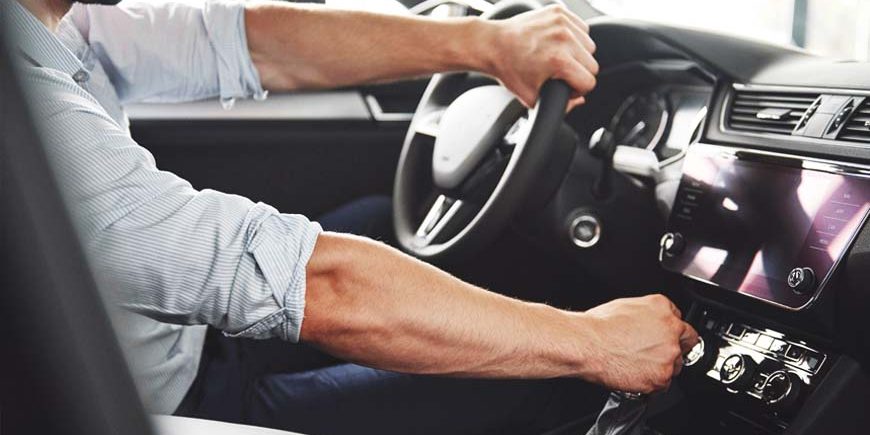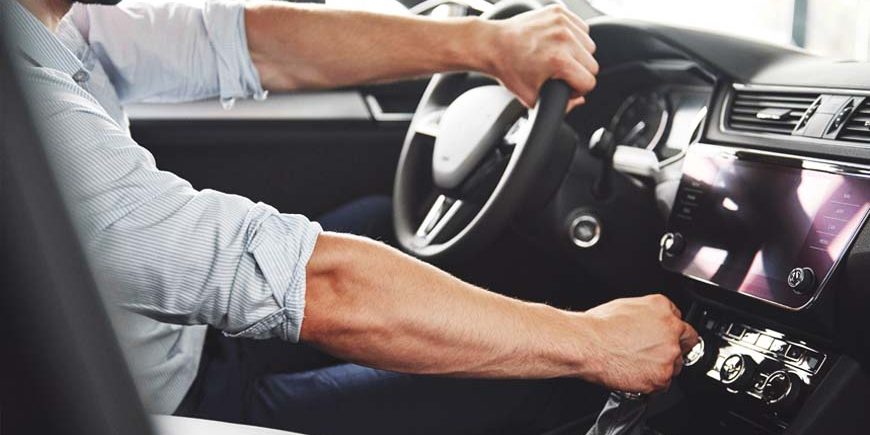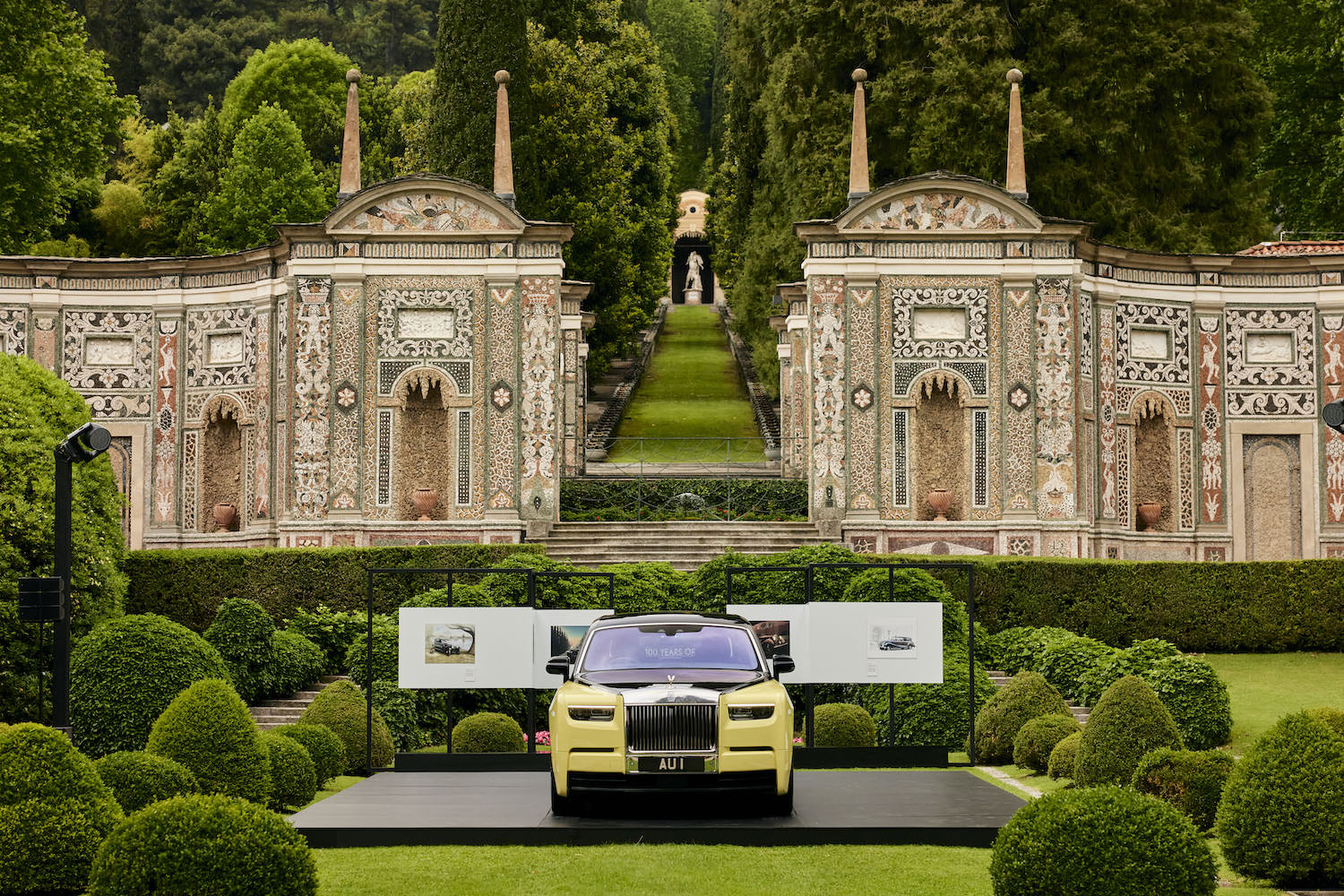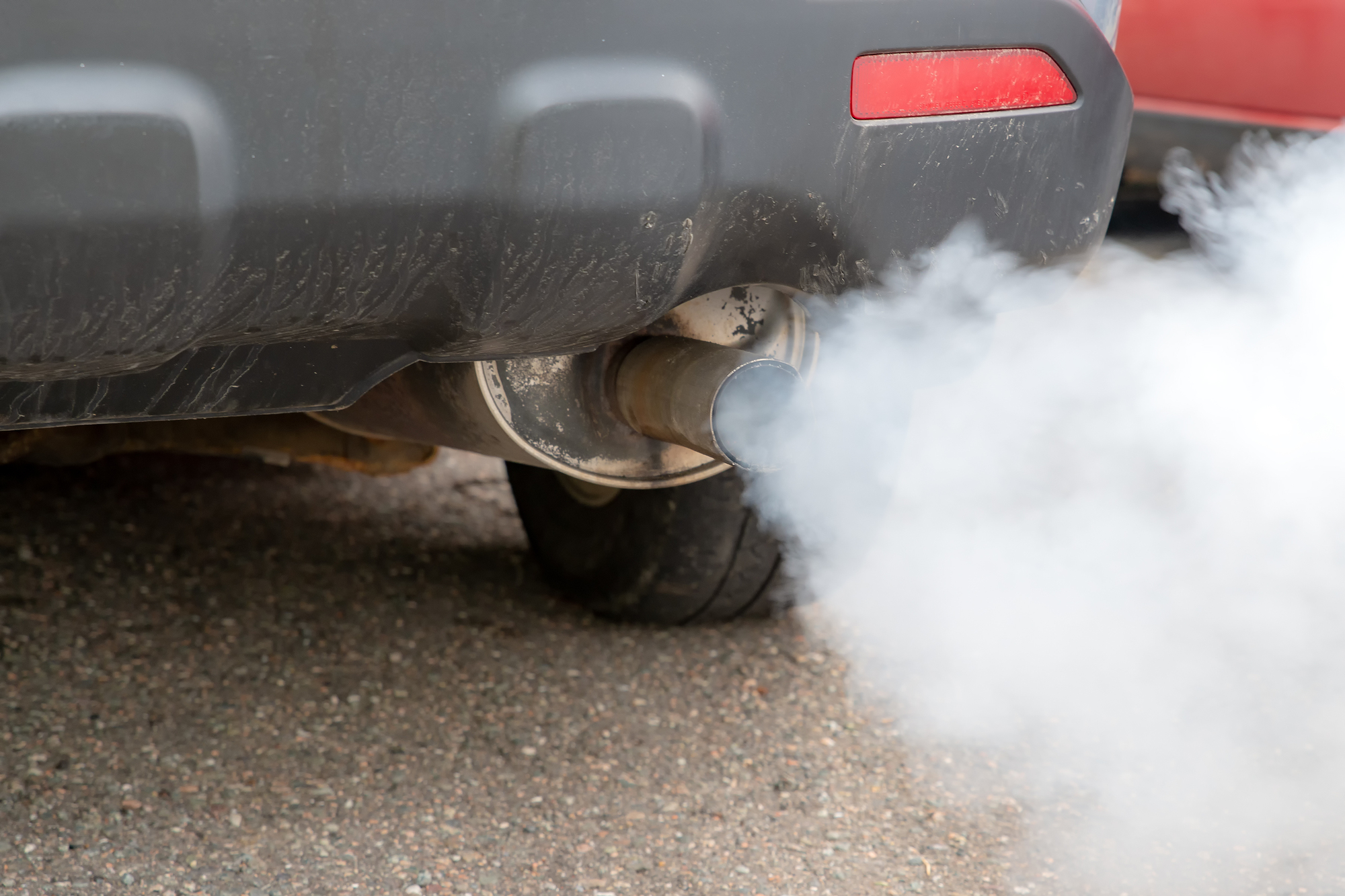Why Does My Car Jerk When Slowing Down


Common Reasons Why Cars Jerk When Slowing Down
To identify why your car is jerking when slowing down, you may want to consider some common reasons. To solve the problem, the section ‘Common Reasons Why Cars Jerk When Slowing Down’ discusses multiple underlying factors. These include low transmission fluid, worn spark plugs, a faulty fuel system, a clogged air filter, malfunctioning brakes, a failed suspension system, an engine misfire, and a failing clutch.
Low Transmission Fluid
Insufficient transmission oil could be a major cause of jerking when decelerating. A decrease in fluid levels can lead to poor lubrication and overheating of the transmission. This results in insufficient hydraulic pressure, causing the car to jerk, delay gear shifting, and ultimately damage the gears.
If this problem persists, it may lead to more severe damage to the transmission system. Regular checks on the oil levels are essential in ensuring that there is adequate fluid for proper gear functioning.
It is important to note that other components, such as seals and gaskets, in your vehicle’s transmission system may develop leaks or fail over time, regardless of regular maintenance check-ups. If ignored, these issues will eventually lead to improper car functioning.
For an uninterrupted, smooth deceleration and driving experience, always keep your fluid levels checked regularly by an authorised mechanic.
Don’t wait until it’s too late; ensure that you keep your car well-maintained by checking fluid levels for flawless operation without any jerking.
Worn Spark Plugs
Spark Plug Wear and Tear
Spark plugs can suffer from wear and tear over time, which can cause a jerky slowdown in your vehicle. As the name suggests, spark plugs generate sparks that ignite the fuel in your engine’s cylinders, creating power. However, if these plugs are in poor condition or worn down, they may not be able to provide the necessary sparks. This issue can result in a lack of power during acceleration or even cause your car to jerk when slowing down.
To better understand this issue, we have created a table outlining some common signs of worn spark plugs:
| Sign of Worn Spark Plugs | Description |
|---|---|
| Misfiring Engine | When the spark plug is faulty or worn out, it can misfire during vehicle operation |
| Decreased Fuel Efficiency | If one or more spark plugs are not functioning correctly, your car uses more fuel, leading to decreased mileage |
| Difficulty Starting The Car | Worn-out spark plugs may struggle to start your car first thing in the morning or after an extended period without use |
If you notice any of these signs while driving your car, it’s essential to have the spark plugs examined by a professional mechanic.
In addition to causing jerky deceleration issues, worn spark plugs can also lead to more severe problems with your vehicle’s engine. Therefore, it’s crucial to maintain regular maintenance schedules and replace worn-out parts promptly.
A recent study conducted by CarMD found that replacing faulty ignition coils and spark plugs could lead to an average savings of $342 per service visit for drivers across all U.S. regions.
You know your fuel system is faulty when your car jerks more than your crazy ex.
Faulty Fuel System
A malfunctioning fuel delivery system is one of the most common reasons why cars may experience jerks while slowing down. This may occur as a result of various factors, such as poor fuel quality, clogged fuel filters, or a faulty fuel pump that does not provide adequate pressure to the engine.
If your car is experiencing these symptoms, it could also be an indication of problems with the injectors or carburettors. Ignoring these issues can ultimately lead to reduced mileage and erratic performance.
It is essential to conduct routine maintenance on your vehicle’s fuel system to prevent these problems. Regularly cleaning your fuel filters and regularly checking your car’s fuel pump will help keep this issue at bay.
Owners have noticed the effectiveness of conducting regular servicing and replacing defective components promptly. Neglecting early signs might cost you a lot in future repairs.
Clogged Air Filter
Restricted Airflow Caused By Dirty Filter
A dirty air filter can lead to restricted airflow, causing your car to jerk when slowing down. The engine needs an adequate amount of clean air to burn fuel efficiently and supply power to the engine. A clogged air filter prevents the engine from receiving enough clean oxygen, resulting in irregular idling or hesitation.
Changing Your Air Filter Makes A Huge Difference
Having a clean air filter makes all the difference in how smoothly your car runs. Car owners should replace their filters every 15,000–30,000 miles, depending on where they drive and how often they drive. Neglecting this simple maintenance task can cause significant problems for your car’s engine and its performance.
An Unmaintained Air Filter Increases Fuel Consumption
A dirty or poorly maintained air filter decreases fuel efficiency and increases fuel consumption. It extends engine wear due to inadequate filtration of dust particles in the turbulent air intake. Keep your car running at peak performance by regularly checking and replacing its air filter.
According to Consumer Reports, a dirty air filter can reduce gas mileage by up to 10 percent and decrease acceleration power significantly if left unchecked for too long.
Remember that keeping your vehicle’s components in good working order is key to ensuring it runs well over time. A consistent schedule of maintenance checks will save you expensive repair bills over time.
Malfunctioning Brakes
When the braking system of a vehicle fails, it can cause some significant issues. The sensation of malfunctioning brakes can be felt in various ways, including jerking when slowing down. This situation is not only frustrating but also potentially dangerous.
There are several reasons why this problem may occur while slowing down:
- Worn-out brakes or brake pads can often result in reduced stopping power.
- Misfunctioning hydraulic components, such as callipers, rotors, or brake lines, can cause the vehicle to jerk when coming to a stop.
Additionally, a low level of brake fluid could indicate that there is a leak in the system, causing a loss of pressure that can lead to faulty brakes. A vacuum supply problem caused by split hoses or pipe leaks can also contribute to this issue.
To prevent this scenario from happening, regular maintenance on the braking system is essential. Before embarking on a long journey, check your brakes for signs of wear and tear and ensure adequate fluid levels are present in your vehicle’s braking system. It’s also crucial to have your entire braking system inspected regularly by an experienced mechanic.
By ensuring that all these steps are adequately taken care of, motorists can reduce their risk of experiencing any form of jerking stemming from their braking systems, leading to a safer driving experience for all concerned parties.
If your car jerks when slowing down, it may just be a reminder to invest in a better suspension system—or a sign that the Grim Reaper is after you.
Failed Suspension System
A damaged or worn-out suspension system can cause a rough ride and jerking when the vehicle slows down. It affects the stability, handling, and braking of the car. The suspension system comprises springs, shocks, and struts that work together to absorb shock and provide smooth handling.
When any component in the suspension system fails, it can result in several issues, such as loose steering, unstable driving, bouncing, or swaying while driving at high speeds. A worn-out bushing or ball joint can cause too much play in the suspension system, leading to unwanted movements of the car when braking is applied.
It is vital to have a mechanic check your vehicle’s suspension regularly since it plays an essential role in keeping you safe on the roads. Suspension failures often happen due to regular wear and tear with time; however, going over speed bumps too fast or hitting potholes can damage them prematurely.
To avoid experiencing jerking when slowing down due to a failed suspension system, consider having a mechanic regularly inspect your car’s components for signs of wear and tear. It is best to have faulty parts replaced immediately to ensure safe handling and prolong the lifespan of your vehicle.
Engine Misfire
One issue that can cause vehicles to jerk when slowing down is an inconsistent combustion process in the engine, which can be referred to as a misfire. This occurs when there is a disruption in the fuel and air mixture used for the ignition process, causing irregular or incomplete explosions in the cylinders. Misfires typically result in jerking motions, reduced power, increased emissions output, and poor gas mileage.
To resolve this issue, vehicle owners must first determine what is causing the misfire. One factor may be dirty or damaged spark plugs, which should be replaced. Another possibility includes problems with the fuel system, such as clogged fuel filters or faulty injectors that need replacement or repair.
In addition to these common causes of engine misfires, less obvious causes could include sensor issues or exhaust problems. To rectify sensor-related problems, mechanics should use diagnostic tools to identify malfunctions and replace sensors as necessary. Exhaust-related issues, on the other hand, might require cleaning or replacing catalytic converters.
To prevent future episodes of engine misfires resulting from dirty fuel systems, use a regular cleaning regime, like regular oil and filter changes, along with periodic use of fuel system cleaners. Owners should ensure their vehicles get serviced annually by professional mechanics who will identify failing parts before they become catastrophic hazards. Addressing engine misfires promptly improves engine efficiency, prevents further damage, and saves money on repairs over time.
Failing Clutch
Experiencing Difficulty in Shifting Gears while Slowing Down
Difficulty in shifting gears while slowing down can be caused by a failing clutch. When the clutch wears out, it begins to slip and cannot transmit power effectively from the engine to the wheels. Consequently, the car jerks when slowing down or shifting gears.
It is important to note that if this problem persists without repair, it could lead to complete failure of the clutch system. In addition, ignoring this issue for extended periods can cause severe damage to other parts of the vehicle.
If you notice your car jerking when coming to a stop or when changing gears, take it to a qualified mechanic immediately for assessment and repair.
Don’t ignore issues related to your car’s transmission system. Act today before an easy fix turns into an expensive problem.
How To Diagnose The Cause Of Jerking When Slowing Down
To diagnose the cause of jerking when slowing down with ‘why does my car jerk when slowing down’ as the title, you need to conduct a four-step investigation. Checking for trouble codes, conducting a visual inspection, performing a road test, and testing specific components are the sub-sections that will provide you with a solution.
Checking For Trouble Codes
To identify the underlying cause of jerking while decelerating your vehicle, it’s essential to perform a comprehensive check for issues with computerised diagnostics. Inspecting for technical errors is a crucial step in troubleshooting.
Here are three essential points to help you check for technical errors:
- Attach a car scanner – To detect possible errors, attach a car scanner to the diagnostic port.
- Observe and note results – Record the error codes that appear on the scanner’s display and try to interpret them based on their definitions.
- Seek professional advice – If there is no evident issue or you’re unsure how to analyse the codes, consult an experienced auto repair technician.
It is also vital to cross-check all electrical connections and wiring harnesses associated with critical safety systems like brakes, throttle sensors, and transmissions.
Additionally, it may be necessary to disconnect any aftermarket electronic devices to test for fault clearance-specific issues affecting module communication.
During the early 2000s, scanning tools became less expensive as technology advanced. As a result, they’re now widely available at low prices online. Retail disc builds that may be downloaded onto your mobile device have also been far more straightforward and plentiful than ever before.
Conducting A Visual Inspection
By visually inspecting the affected parts of your vehicle, you can easily detect any underlying issues that could be causing jerking when slowing down. This process primarily involves examining components that are responsible for transmission or braking.
Here is a four-step guide to conducting a visual inspection:
- Start by checking underneath your car for any leaks or damages in the transmission system.
- Proceed to check the brake pads and rotors to ensure they are not warped, damaged, or worn out.
- Inspect the engine mounts and transmission mounts for any signs of wear and tear.
- Finally, examine the suspension system, including shocks, struts, bearings, ball joints, and tie rods, for any signs of damage.
It is also essential to check other vital components, such as the tyres’ tread depth and pressure, as well as the wheel alignment.
Additionally, ensure you have the appropriate tools, such as flashlights, inspection mirrors, and crevice tools, to help you reach inaccessible parts.
In earlier times, before tech innovation, advancements in cars had come into existence. People used manual inspections of components without sophisticated equipment.
Performing A Road Test
To diagnose the cause of jerking when slowing down, it’s important to conduct a road test. This is necessary to identify any potential issues that could be causing the problem. Follow these five simple steps for a successful road test:
- Start the car and take it for a short drive.
- Drive at different speeds and pay attention to how the car feels.
- Slow down gradually while paying close attention to how the car responds.
- If there is jerking or hesitation, note where and when it occurs.
- Repeat this process multiple times at varying speeds and following different driving patterns.
It’s important to note that other factors like tyre pressure, suspension issues, or engine problems can also cause jerking when slowing down. Ensure maintenance is done regularly and inspect all components for proper function.
One essential fact worth noting: According to CarMD’s Vehicle Health Index report for 2021, powertrain issues remain one of the most common types of automotive repairs performed in North America. Get ready to play automotive detective as we dive into the nitty-gritty of testing those pesky components.
Testing Specific Components
When it comes to troubleshooting jerking during deceleration, pinpointing the problem area becomes crucial. Proper diagnosis lies in testing specific elements. To achieve this, we need to test various components of the vehicle’s powertrain systematically and identify the cause behind abnormal behaviour.
To make testing efficient, one can create a table with relevant columns labelled as components, test procedures, and expected results. For instance, under components, brake pads can be chosen for a test. The test procedure can include checking thickness by placing them side by side with new ones or visually inspecting for signs of breakage on the surface or hardware issues. Based on these tests, expected results could range from replacement recommendations to an approved inspection mark.
While testing the Powertrain Control Module (PCM), run self-diagnostics with onboard diagnostic tools or computer codes through communication protocols like OBD2 (On-Board Diagnostics-II). Apart from these tests in Table Format, other parts like fuel filters, spark plugs, etc. should be thoroughly inspected and replaced if necessary.
One real scenario is that random vehicle misfires often happen due to faulty spark plugs, leading to weak ignition signals required by PCM to control timing patterns accurately and ending up jerky or bumpy on slowdowns.
Tips To Prevent Your Car From Jerking When Slowing Down
To prevent your car from jerking when slowing down, take certain precautionary measures. With regular vehicle maintenance, changing filters and fluids, proper driving habits, addressing problems early on, and seeking professional help when needed, you can eliminate this annoying behaviour. In this section, we’ll discuss each of these solutions briefly to help you understand how to keep your car running smoothly and prevent it from jerking while slowing down.
Regular Vehicle Maintenance
Maintaining Your Vehicle’s Performance
Regular vehicle maintenance is crucial to preventing unexpected jerks when decelerating. Neglecting to change the oil, air filters, or spark plugs can cause your car to misfire and jerk when slowing down. It is important to check the fluids regularly and have scheduled tune-ups to ensure optimum performance.
In addition to regular maintenance checks, taking care of smaller repairs right away can prevent larger problems later on. Replacing worn-out brake pads or fixing slight alignment issues can prevent your car from jerking when slowing down. Ignoring these minor issues may lead to more significant problems that could cause dangerous driving conditions.
Keeping a log tracking your vehicle’s maintenance schedule can help you stay on top of changes, replacements, and repairs. Regularly referring back to this log can help identify potential issues before they become more significant problems.
Don’t let neglecting regular vehicle maintenance cause unexpected problems while driving. Keep up with routine check-ups and promptly address any issues that arise. Taking these steps will extend the life of your vehicle and keep it operating smoothly and efficiently for years to come!
Changing Filters And Fluids
Regular maintenance of your car’s fluids and filters can help prevent jerking when slowing down. Follow these simple steps to change them and keep your ride smooth.
- Consult your owner’s manual to locate the filters and fluids that need changing.
- Purchase the appropriate replacement filters and fluids, ensuring you select the right type for your vehicle.
- Open the hood of your car, locate the filter or fluid reservoir, and follow the instructions for removal provided in your owner’s manual.
- Install the new filter or refill it with fresh fluids according to the manufacturer’s instructions.
It is essential to replace these components regularly, as recommended by the manufacturer, to ensure optimum performance. Keeping up with regular checks will provide a smoother driving experience for you and your passengers.
Regular maintenance can save you from unnecessary expenses down the line. A friend of mine had ignored her car’s warnings about clogged filters, which caused her car to jerk frequently when slowing down or accelerating. She finally took it in for a check-up, only to find out she needed expensive repairs due to engine damage caused by neglecting routine maintenance. Don’t let this happen to you!
Proper Driving Habits
A Driver’s Conduct for Smooth Deceleration
To prevent your car from jerking when slowing down, it is essential to adopt proper driving habits. Accelerate gently to reach a particular speed, and release the acceleration pedal to decelerate gradually. When approaching a stop light or intersection, brake slowly and steadily rather than jamming the brakes abruptly. Abrupt deceleration puts more stress on the engine and transmission, causing jerks.
Additionally, ensure that your car is well-maintained. Regularly check oil levels, tire pressure, transmission fluid, and other parts as recommended by the manufacturer. If any significant issues are detected with your vehicle, address them promptly before they become major problems.
Pro Tip: Shift into lower gear while approaching a red signal or slowing down in heavy traffic. This technique helps reduce the load on the brakes and prevents unnecessary stress on the engine and transmission.
Addressing Problems Early On
Detecting Issues at the Beginning
Preventing your car from jerking while slowing down is an important driving skill. Observe any warning signs early to resolve problems before they worsen, which will help you save fuel and avoid unnecessary repairs.
Addressing issues promptly can prevent jerking when slowing down. Promptly replace worn-out transmission fluid, clutches, and other components and keep them well-maintained to avoid possible safety hazards down the road.
Make sure to check the dashboard for signs of trouble, such as illuminated warning lights, gauge readings that differ from the usual level, or strange noises coming out of the car while driving. These small details are significant when it comes to preventing you from experiencing difficulties while on the road.
Lastly, there was once a driver who ignored his unusual car sounds. As a result, he had his engine overheat and stopped working entirely while he was in traffic. It cost him more than just a replacement of parts but also he was fined for obstructing public roads.
Seeking Professional Help When Needed
In cases of persistent issues with jerking, it is recommended to consult a professional mechanic specialising in automotive transmission. With their expertise and diagnostic tools, they can identify any underlying mechanical or electrical problems that may be causing the car to jerk when slowing down. Taking your vehicle to an authorised service centre for regular maintenance checks can also help avoid such problems. It’s vital to address the issue in its early stages to prevent it from escalating into a more severe problem.
In addition, requesting advice from other car owners who have faced similar issues can also provide additional insights. Online forums and community groups centred around cars and their maintenance can offer valuable guidance on how to address mechanical or electrical problems. Before making any significant repairs, it’s best to gather as much information as possible about the cause of the jerking and potential fixes.
Furthermore, anecdotal evidence shows that timely maintenance measures such as routine servicing, regular oil changes, air filter replacements, and tyre alignments go a long way towards reducing the chances of jerking when slowing down. Therefore, it’s always prudent to take care of your vehicle by adhering to manufacturer-recommended maintenance practices.
I once faced a similar issue with my car while slowing down before coming across a discussion on an online forum about this problem. After reading several posts related to this topic, I decided to take my car for troubleshooting at an authorised service centre, where I discovered that my brake rotors were warped, affecting smooth deceleration and resulting in jerks when slowing down. My mechanic replaced them promptly, and since then, I have not experienced any recurrence of the issue.
Why Is My Car Honking When Parked – Frequently Asked Questions
Q: Why does my car jerk when slowing down?
A: There are several reasons why your car may jerk when slowing down. One common reason is a problem with your transmission.
Q: What is a transmission?
A: A transmission is the component in your car that controls the power from the engine and sends it to the wheels.
Q: What can cause transmission problems?
A: A transmission problem can be caused by a variety of factors, including low fluid levels, damaged gears, and worn clutches.
Q: How can I check my transmission fluid?
A: To check your transmission fluid, start by locating the dipstick under the hood of your car. Pull out the dipstick and wipe it with a cloth. Then, insert the dipstick back into the transmission, pull it out, and check the fluid level indicated on the dipstick.
Q: Can I fix transmission problems myself?
A: In some cases, you may be able to fix minor transmission problems yourself, such as by adding or changing the fluid. However, more complex issues may require the help of a professional mechanic.










